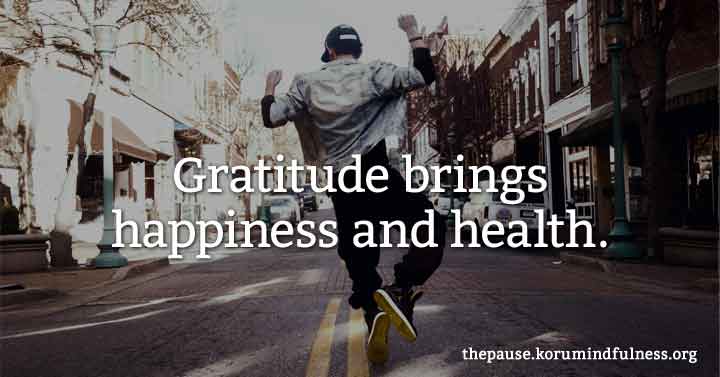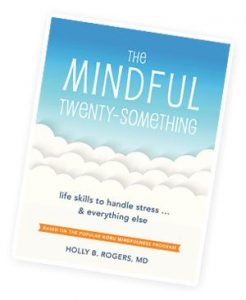
Recently, a student said to me, “I haven’t been writing down what I’m grateful for on my meditation log because that doesn’t really seem like a mindfulness exercise to me.”
I get it. It is not immediately clear how writing down a couple positive things about your life helps you get better at mindfulness.
Here’s the thing, though. When our minds are left to their own devices, they naturally seek out and fixate on the problems in life. This turned out to be a great survival strategy for the human species; finding problems so you can avoid or fix them increases your chance of outsmarting scary predators or other dangers.
Unfortunately, if you don’t balance this natural tilt towards the negative, you end up with an overly critical view of your life. Your mind picks up on all the rough stuff and misses much of the good stuff.
Even if you are in a pretty rough patch in your life, you probably still have some pleasant moments in your day. Maybe it is the feel of sunshine on your face as you walk to work. Maybe it is the feel of your soft bed as you lie down at the end of a long day. Maybe it is simply the smile you get from the woman who sells you your coffee.
In truth, most days have some good moments and some tough moments. Fully registering those small moments of pleasure balances out the annoyances and hassles that we all encounter during the day. When you write down a couple things you can feel grateful for each day, you are mindfully bringing that good stuff fully into your awareness, and that helps in important ways.
We’re now on Instagram and Snapchat! Make sure to connect with us for tips and inspiration!
Robert Emmons at the University of California, Davis has spent his career researching gratitude. His work has shown that keeping a gratitude journal produces an absurd number of benefits. Even just a few weeks of writing down what you are grateful for makes you happier, healthier, more outgoing, more optimistic and less lonely.

Emmons says, “Being grateful doesn’t mean that life is perfect; it doesn’t ignore complaints, burdens, and hassles. But when we look at life as a whole, gratitude encourages us to identify some amount of goodness in our life.” And when we do that, we feel a whole lot better.
Get started with your gratitude journal by linking it to your meditation practice.The Koru app makes this easy because we include a gratitude journal in the meditation log.
Start by using the timer on the app when you meditate. When the timer goes off, a log entry appears for you to complete. There is a space in the log entry for you to record a couple things you are grateful for. Linking gratitude to your meditation practice is a great way to reinforce your mindfulness skills.
One final thing, don’t feel the need to force the actual feeling of gratitude. As a mindfulness exercise, the idea is to bring awareness to positive moments in your day. You may or may not actually feel grateful.
Doesn’t matter. It’s an awareness exercise. Not a force-yourself-to-feel-something-you-don’t-feel exercise. Just be curious about how you actually feel without judging yourself.
Tell us what you notice in the comments below. .
Photo by Andre Hunter on Unsplash
Get our latest articles in your inbox.

Great idea to join gratefulness statements to our mediation! It keeps me growing and in a place of looking for the positive.